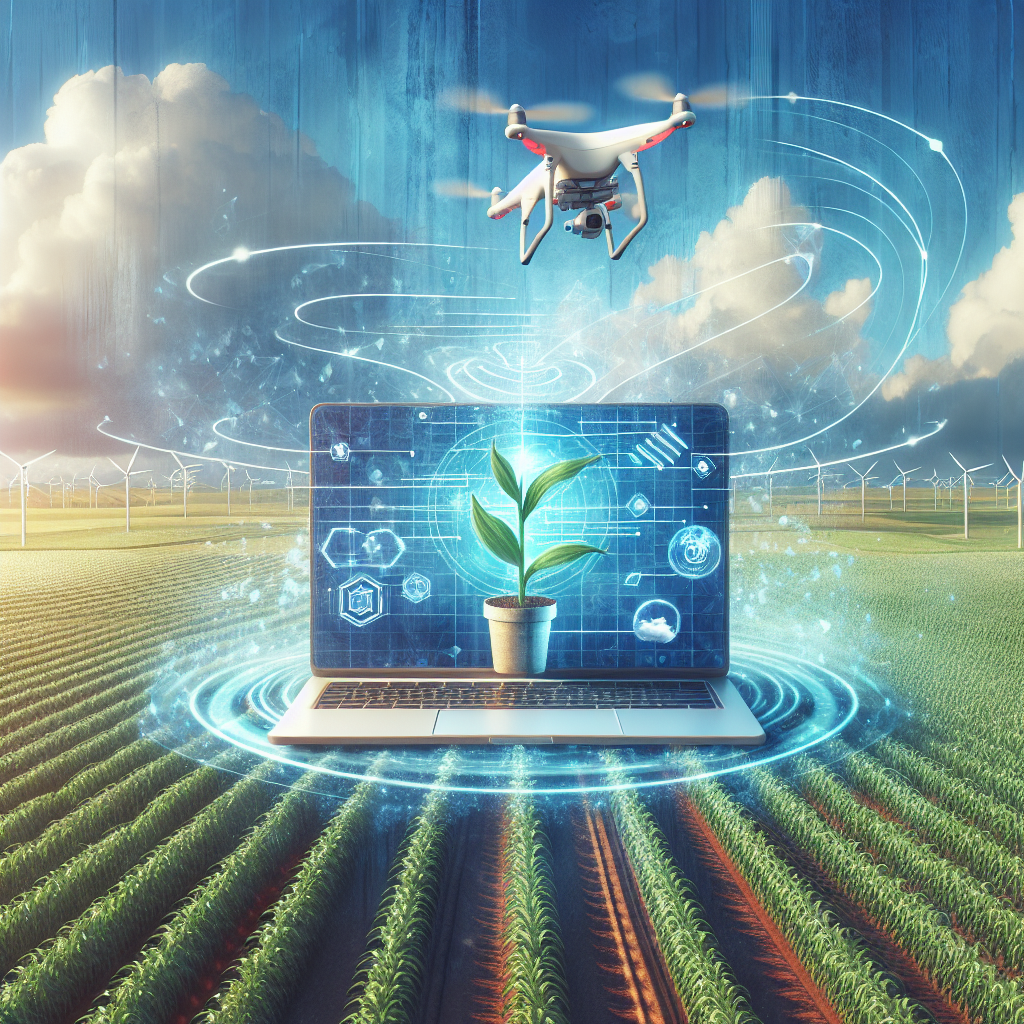In recent years, the global population has been increasing at a rapid rate, leading to a greater demand for food production. At the same time, climate change and environmental degradation are posing significant challenges to traditional agricultural practices. As a result, there is a growing need for innovative and sustainable solutions to ensure food security for future generations.
One of the key technologies that have the potential to revolutionize the way we produce food is artificial intelligence (AI). AI refers to the simulation of human intelligence processes by machines, including learning, reasoning, and self-correction. By harnessing the power of AI, we can improve the efficiency, productivity, and sustainability of food production.
AI can be used in various ways to enhance sustainable food production. One of the most promising applications of AI in agriculture is precision farming. Precision farming involves using data and technology to optimize crop production, reduce waste, and minimize environmental impact. AI algorithms can analyze data from sensors, satellites, and drones to provide farmers with real-time information about soil conditions, weather patterns, and crop health. This allows farmers to make more informed decisions about when to plant, water, fertilize, and harvest their crops, leading to higher yields and lower environmental impact.
Another way AI can help improve sustainable food production is through the development of smart irrigation systems. Water scarcity is a major challenge in agriculture, with inefficient irrigation practices leading to water waste and environmental degradation. AI-powered irrigation systems can monitor soil moisture levels, weather conditions, and crop water requirements to optimize water usage and reduce waste. By ensuring that crops receive the right amount of water at the right time, farmers can increase yields, conserve water resources, and protect the environment.
AI can also be used to improve pest and disease management in agriculture. Pests and diseases can cause significant damage to crops, leading to lower yields and increased use of chemical pesticides. AI algorithms can analyze data from sensors, cameras, and drones to detect early signs of pest infestations and diseases, allowing farmers to take timely action to prevent outbreaks. By using AI-powered pest and disease management systems, farmers can reduce the need for chemical pesticides, protect biodiversity, and promote sustainable farming practices.
In addition to precision farming, smart irrigation, and pest management, AI can also be used to improve livestock farming practices. AI-powered systems can monitor animal health, behavior, and performance to ensure optimal conditions for growth and productivity. By using AI to analyze data on feed intake, weight gain, and disease outbreaks, farmers can make informed decisions to improve animal welfare, reduce environmental impact, and increase profitability.
Overall, harnessing AI for sustainable food production has the potential to revolutionize the way we grow, harvest, and distribute food. By leveraging the power of AI, we can optimize resource use, reduce waste, and minimize environmental impact, leading to a more sustainable and resilient food system for future generations.
FAQs:
Q: How can AI help improve the efficiency of food production?
A: AI can help improve the efficiency of food production by providing farmers with real-time information about soil conditions, weather patterns, and crop health. This allows farmers to make more informed decisions about when to plant, water, fertilize, and harvest their crops, leading to higher yields and lower environmental impact.
Q: How can AI be used to reduce water waste in agriculture?
A: AI-powered irrigation systems can monitor soil moisture levels, weather conditions, and crop water requirements to optimize water usage and reduce waste. By ensuring that crops receive the right amount of water at the right time, farmers can increase yields, conserve water resources, and protect the environment.
Q: How can AI help improve pest and disease management in agriculture?
A: AI algorithms can analyze data from sensors, cameras, and drones to detect early signs of pest infestations and diseases, allowing farmers to take timely action to prevent outbreaks. By using AI-powered pest and disease management systems, farmers can reduce the need for chemical pesticides, protect biodiversity, and promote sustainable farming practices.
Q: How can AI be used to improve livestock farming practices?
A: AI-powered systems can monitor animal health, behavior, and performance to ensure optimal conditions for growth and productivity. By using AI to analyze data on feed intake, weight gain, and disease outbreaks, farmers can make informed decisions to improve animal welfare, reduce environmental impact, and increase profitability.

